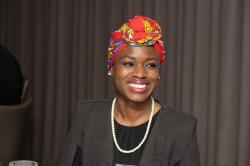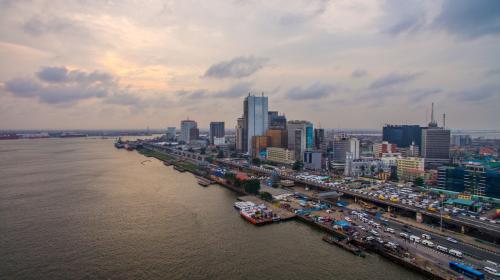Executive summary
This policy brief examines the importance of gender-responsive public procurement (GRPP) in Nigeria. GRPP is the purchase by government agencies of goods, services, and construction in a way that promotes gender equality. It can be used to increase the number and value of contracts awarded to women-owned businesses (WOBs) and gender-responsive businesses, ensure that publicly delivered services are designed and delivered in a way that reduces gender inequalities, and ensure that men and women can benefit equally from public services.
The brief provides an overview of GRPP in Nigeria. It notes that public procurement accounts for up to 50% of government expenditures in sub-Saharan Africa and can be used to achieve a variety of policy goals, including gender equality. The brief highlights the importance of GRPP in Nigeria, noting that women are underrepresented in the Nigerian economy, and GRPP can support gender equality through women’s economic empowerment, with a resulting positive impact on child health, education, poverty, and gender-based violence. GRPP further reduces procurement costs and has been described as a “solution multiplier” given its impact on sustainability and innovation in the public sector.
The brief reviews the current state of GRPP in Nigeria, and finds that there is a limited focus on GRPP, and that there is a disparity between the value of public contracts awarded to WOBs, the number of WOBs, and the business sectors in which WOBs operate.
Finally, the policy brief recommends that GRPP should be a priority for the Nigerian government, and federal and state governments should amend the respective procurement laws to provide for set-asides for WOBs, develop and implement a national GRPP policy, and provide support to WOBs to enable them compete for public contracts.
Key recommendations
- The Nigerian government must address the absence of legal and policy prioritization of WOBs in procurement by providing a clear mandate on what procuring entities are required to do accompanied by measurable targets. These mandates should be accompanied by implementing guidelines providing guidance on the implementation of the mandates. In addition, gender equality policy frameworks must be aligned with procurement legislation, to ensure that the impact of the GRPP measures on gender equality are monitored and assessed.
- The complexity of public procurement must be mitigated by simplifying the requirements for WOBs (and small and medium enterprises) such as the requirements for registration, bid and performance guarantees.
- Challenges that WOBs report with accessing technology should be reduced through the creation of procurement hubs where bidders may use facilities to download, complete and submit documents. These hubs should include a gender desk (which currently exist in most government ministries, departments, and agencies). The gender desk should be tasked with providing appropriate support to WOBs in navigating the procurement system.
- Efforts should be made to minimize the information asymmetry which affects WOBs’ participation in procurement by improving the dissemination of information on public opportunities, improving access to bidding documents and evaluation criteria. Data on the availability of qualified WOBs in various sectors may be improved through registration exercises, cooperation with women business groups, and ongoing collation of gender disaggregated data.
- Mitigating patriarchal assumptions and biases against women could be addressed by training procuring officials to understand the importance of gender equality and women’s economic empowerment and identifying and addressing conscious and unconscious biases. Outside of the procurement framework, patriarchal norms have to be mitigated by strengthening laws that protect women and by including gender awareness in basic education curriculums.
- Public procurement corruption in the form of bribery, sexual corruption and favoritism affects WOBs in bidding for public contracts. Addressing sexual corruption is difficult because gendered attitudes to sexual abuse normalize it, and misogyny and shame surrounding sex makes women less willing to report abuse. However, sexual corruption may be addressed by increasing the chances of reporting by destigmatizing it and providing safe channels for whistleblowing.
Introduction
Public procurement is the purchase by government agencies of the goods, services, and construction required to function and maximize public welfare. It accounts for 12.9% of GDP across OECD countries and up to 50% of government expenditures in sub-Saharan Africa. Public procurement is thus of crucial importance to social and economic development.
As a result of the large sums involved in public procurement, many countries use their procurement spend to achieve varied policy goals beyond the purchase of the required goods and services. These policy goals cover the range of sustainability issues such as the economic advancement of minorities or disadvantaged groups, promotion of fair labor practices, and climate action. In recent times, international attention has turned to using procurement systems to advance gender equality. This is referred to as gender-responsive procurement and is defined by UN Women as “the selection of services, goods and civil works that considers their impact on gender equality and women’s empowerment.” The Organization for Economic Cooperation and Development further describes it as “the introduction of gender requirements and considerations into public procurement policies and practices,” whilst the European Institute for Gender Equality defines it as “procurement that promotes gender equality through the purchase of works, supplies or services by public sector bodies. This means that buyers and suppliers look at the impact of all of the contracted activities related to women’s and men’s interests and concerns and design and deliver contracts in a way that reduces gender inequalities.” Gender-responsive procurement may promote “gender equality in how public resources are collected and spent” and can promote employment opportunities and social inclusion for women at all stages of public sector supply chains.
From the above definitions, GRPP is comprised of two approaches: first, the awarding of contracts in a way that impacts gender equality and promotes women’s economic empowerment, either through the awarding of contracts to WOBs or to businesses that have mainstreamed gender equality in their policies and practices, even if they are not women owned. The second approach is one that considers the impact that publicly delivered services will have on gender equality. At present, most countries have limited gender-responsive procurement representative of the first approach, with a policy and legal focus on increasing the value of public contracts awarded to WOBs.
In Nigeria, the interviews conducted for this brief reveal that there has been a limited focus on GRPP and there is a consensus in the public sector that public procurement spend by value does not align with the number of WOBs and the sectors in which they are represented. This is unfortunate, given that the COVID-19 pandemic underscored the need to address gender inequalities in public procurement as a means of improving women’s economic empowerment and boosting economic recovery from the pandemic. Gender-responsive procurement reduces procurement costs and has been described as a “solution multiplier” given its potential to support women’s economic empowerment and the positive impact of women’s economic empowerment on child health, education, poverty, and on gender-based violence. GRPP may also be structured to support sustainability and innovation in the public sector. Social resilience is further enhanced through women’s economic empowerment, as is the ability of economies to recover from natural and man-made disasters. GRPP is thus important in that it has far-reaching global socioeconomic implications and is necessary if we are to meet the Sustainable Development Goals.
In Nigeria, WOBs account for 40% of small firms and are represented in every business and trade sector. However, despite women’s participation in the private sector, they are poorly represented in relation to access to public contracts.
This policy brief will consider GRPP in Nigeria in terms of WOBs’ access to public contracts. The brief provides a deeper understanding of the state of gender-responsive procurement in Nigeria, examining the current law and policies on gender-responsive procurement in Nigeria, to determine the extent to which WOBs are prioritized in procurement. The brief also considers the barriers to WOBs’ access to public procurement with an eye to providing policy recommendations to address the identified barriers.
The brief considers GRPP from the perspective of federal and two state governments (Ekiti and Kaduna states). The brief adopts a qualitative methodology, relying on a review of legal and policy documents, the existing literature, as well as interviews conducted with stakeholders located in the two states and in the federal capital territory.
Law and policies on gender-responsive procurement in Nigeria
Legal framework
Nigeria is comprised of thirty-six states with a strong federal government. The Constitution gives the federal government and the states concurrent competence over public procurement, creating a duality in the public procurement framework. There is a procurement law which governs procurement at the federal level. There are also separate procurement laws for the states, and most states have adopted specific procurement legislation. The federal procurement statute is known as the Public Procurement Act, 2007 (PPA) and was influenced by the 1994 version of the UNCITRAL Model Law on Public Procurement.
The PPA is a comprehensive statute governing the procurement of goods, services, and works as well as the disposal of state assets. The PPA created the National Council on Public Procurement, responsible for providing policy direction on procurement, and the Bureau of Public Procurement (BPP), responsible for operational procurement oversight of federal contracting entities. State governments provide procurement oversight through state procurement agencies. Nigeria thus has a decentralized public procurement system, without a central law addressing procurement or a central procurement regulator.
The two states examined in this policy brief have adopted laws similar to the PPA. The Kaduna State Public Procurement Law 2016 (KSPPL) provides for the creation of a regulatory authority—the Kaduna State Public Procurement Authority—and establishes the procedures and practices for public procurement within the state. In Ekiti State, the Public Procurement (Re-enactment) Law 2020 (ESPPL) is directly modelled on the PPA and also creates a state Council on Public Procurement as well as a state Bureau of Public Procurement, addressing the regulation, management, and practice of public procurement within the state.
Neither the PPA nor the KSPPL have any provisions on gender-responsive procurement and only grant preferences for local bidders in international competitive bidding and for local content in similar contracts. At the federal level, two executive orders (Executive Order 3 of 2017 and Executive Order 5 of 2018) have required giving priority to qualified local contractors in various sectors. As a result, margins of preferences are given to local contractors in international competitive bidding and local content requirements must feature in sectors such as construction. The absence of express legal provisions for gender-responsive procurement, although a barrier to women’s participation in procurement, does not prevent the award of public contracts to WOBs. Under the KSPPL, the process for public procurement is required to be sustainable (section 35 (1) (c)) and promoting gender equality through gender-responsive procurement is an important facet of sustainability.
Unlike the position in Kaduna State, Ekiti State has recently taken significant measures to further GRPP in the state by creating set-asides of up to 30% for WOBs, reducing the registration requirements for WOBs, and including women on committees that make procurement decisions to address the bias against WOBs in procurement. These changes were included in the May 2023 state Procurement Manual after a consultation process that saw the state examine the challenges faced by WOBs and procuring authorities in the state in relation to GRPP.
Policy framework
Nigeria does not presently have a policy for gender-responsive procurement, although the federal government at an advocacy event in 2021 specified that contracts to WOB ought to account for 30% of all public procurement spend by 2026. This declaration has not yet been documented, either in law or by policy. This is unfortunate, given that earlier research has shown that in the absence of mandatory requirements in relation to gender-responsive public procurement, procuring entities would prefer to maintain the status quo.
Gender equality policy in Nigeria
Gender equality is a multi-dimensional concept comprising of both “opportunities and outcomes” and refers to the state in which access to rights and opportunities and bearing responsibilities and obligations are unaffected by gender. Gender equality seeks to narrow inequitable gaps between men and women in all spheres of life, in relation to responsibilities assigned, activities undertaken, access to and control over resources, as well as decision-making opportunities in the marketplace, in the workplace, in the community, and in the family.
Nigeria struggles with gender inequality and has a high gender gap, ranking 130th out of 146 countries and 30th out of 36 countries in sub-Saharan Africa in the 2023 Global Gender Gap Report. Unfortunately, many indicators of gender inequality have not significantly improved over the last decade. There is, in particular, high wealth inequality between men and women, attributable to, inter alia, the 50% gender pay gap; gender disparities in financial literacy; lower educational attainment; the burden of unpaid work; gender disparities in labor participation; and women being overrepresented in informal, lower paid, and vulnerable employment. In addition, gender disparities in relation to under-employment, the gender gap in management, and life events that influence women’s participation in paid work affect women’s ability to accumulate wealth, leading to income inequalities. The high pay and wealth inequality suggests challenges with women’s economic empowerment in Nigeria, reinforcing the need for gender-responsive procurement.
At the federal level, there is ongoing work to address gender inequality and Nigeria has a revised gender policy (2021-2026), which places gender mainstreaming at the core of the policy. The policy describes its overarching aim as being to “build a just society devoid of discrimination, where the needs and concerns of women, men, girls, and boys are mainstreamed equitably into all sectors of national development,” with specific objectives to achieve gender parity in all spheres of life and harness women’s “human capital assets as a growth driver for national development through women’s economic empowerment.”
Although the gender policy addresses women’s economic empowerment, it unfortunately does not link this to public procurement in a concrete and systematized way. The gender policy recognizes that WOBs make up the bulk of MSMEs and contains a generic target to “promote women’s access to trade, procurement, and opportunities in the extractive industries especially oil and gas.” However, there is no part of the policy that clarifies how this target is to be met. This is not unusual as the research has shown that the gender policies of many countries do not include actionable or measurable targets for women’s economic empowerment.
Barriers to gender-responsive public procurement in Nigeria
There is a plethora of research on the barriers to gender-responsive procurement and women’s entrepreneurship more generally. In order to understand specific barriers militating against women’s participation in public procurement, we reviewed existing literature and undertook interviews with participants located in two states and in the federal capital territory, speaking to a wide range of women’s business owners, procurement regulators, and procurement practitioners. The barriers that women face in procurement and in other sectors perpetuate and reinforce existing inequalities in those sectors. In relation to public procurement, our research revealed the following barriers to gender-responsive procurement in Nigeria:
- Lack of legal and policy prioritization of GRPP: As was discussed, there are no legal or policy mandates for prioritizing women in the procurement process in Nigeria. Although there has been increased awareness about the importance of gender-responsive procurement, and Ekiti State recently formalised set-asides for WOBs in public procurement, at the federal level and in other states, the lack of legal or policy requirements to prioritize or otherwise support WOBs in procurement means that WOBs still have to compete with men for public contracts in the face of gendered barriers.
- Complexity and financial barriers: The WOBs interviewed for this research revealed that the procurement process in Nigeria, as elsewhere, is unduly complex, which affects the participation of both MSMEs and WOBs in the system. Interview respondents in both Kaduna and Ekiti State complained that the complexity of the procurement process made it inaccessible to them. In addition, WOBs interviewed in Kaduna State complained about the high turnover requirement of N50 million naira, which had to be proven by audited financial statements, the bidding fees payable to contracting authorities of N30,000, which MSMEs were reluctant to part with given that there were no guarantees of success in bidding for public contracts, as well as the multiplicity of documents which had to be created to participate in the procurement process. In Ekiti State, the regulator indicated that many WOBs do not understand the procurement process, and this affects their ability to bid for public contracts. Stakeholders revealed that the complexity of the procurement process also means that many WOBs lack the technical capacity required to complete bidding documents. Unfortunately, most of the interventions to address women’s participation in procurement focus on providing access to information on public contract opportunities, and these interventions do not address the complexity of procurement or the related capacity to WOBs to bid for public contracts.
- Access to technology: Like many countries, procuring entities in Nigeria rely on technology to implement aspects of the procurement process. Whilst there are several benefits to using technology in public procurement, without mitigating measures, this might exacerbate the rural-urban digital divide and become a barrier to underserved women who have limited access to the internet or live in areas where internet facilities are sub-par. Survey respondents complained about the difficulties faced uploading tender documents on public sector portals in areas with low internet bandwidth.
- Information asymmetry: Public procurement has always been challenged by an information asymmetry, which affects both public and the private sector participants. For instance, WOBs encounter the limited availability of procurement information as a barrier to participation. This manifests in relation to information on relevant public opportunities, accessing bidding documents, and evaluation criteria. In addition, procuring authorities struggle with a lack of information on the availability of qualified WOBs in various sectors to enable them target specific opportunities at them.
- Patriarchal assumptions and bias against women: Nigeria is a highly patriarchal country, and women entrepreneurs are affected by assumptions about women’s role in society. In Ekiti State, the regulator indicated that because public procurement is male-dominated, many women believe that public procurement is the exclusive privilege of men. As a result, women entrepreneurs are reluctant to bid for public contracts because they don’t believe that it is accessible to women. This assumption feeds into the bias that procuring entities exhibit in favour of working with men-owned businesses, to the detriment of WOBs. Further, the gendered nature of household labor creates time-poverty for many women which affects WOBs as they may lack the time required to devote to navigating the complexity of the procurement process in order to submit a compelling bid. In addition, many women are still subjugated by their husbands, who determine the level of formality of a WOB and also determine which business activities will be pursued. Respondents from Kaduna State revealed that many married women are not permitted to undertake business activities outside of the home or undertake business activities which might attract attention to the women. This is one reason for the high degree of informality amongst WOBs in Nigeria and also partly explains their reluctance to participate in public procurement.
- Corruption: Public procurement is highly susceptible to corruption and Nigeria loses significant amounts of public funds to procurement corruption. Corruption in Nigeria is gendered and our research revealed that corruption acts as a barrier to WOBs’ participation in procurement in several ways. First, many WOBs refuse to engage in public procurement as they believe that the procurement process is compromised, and that procuring entities have already pre-determined the contract awardees. There is a belief among WOBs that they would have to bribe officials or be connected to officials in the public sector in order to obtain a public contract. Procurement regulators highlighted that because politicians are (corruptly) involved in procurement, they are, in some cases, able to recommend the winning bidder on public contracts. Bribery is a barrier to WOBs because women in Nigeria are less likely to pay a requested bribe, meaning they will be excluded from contracts that are only obtainable through bribery. Secondly, sexual corruption, in the sense of requesting sexual favours to access public services and opportunities, has been proven to exist in Nigeria and appears from our interviews to be prevalent in public procurement. As a result, WOBs shun public procurement in order to avoid sexual harassment and sexual extortion. During our interviews, respondents indicated that procurement “exposes” women to sexual advances and many women would rather avoid the procurement system than be exposed to these advances. Thirdly, favoritism also acts as an impediment to WOBs succeeding in procurement. Some respondents indicated that there is often an ethnic bias in the award of public contracts which disincentivizes new entrants who may not benefit from that bias from participating in procurement.
- Gender risk appetite: Research has indicated that there are gender differences in attitudes towards risk, resulting in women being less willing to take risks than men. Our research also confirmed this as a barrier to women’s participation in procurement. Many respondents across the states and the federal government alluded to the difference in the risk appetite of women compared with men. As a result of the barriers to women’s participation in procurement, such as corruption, patriarchal assumptions, procurement complexity, the information asymmetry, as well as the technological impediments, many women are unwilling to take the risk of participating in a system with high financial barriers to entry that might be compromised or biased against them. The research on women’s attitudes to risk highlighted that women are both less tolerant of losses and less optimistic than men in relation to financial issues and thus, WOBs would rather deal with the private sector or operate in retail spaces, where the business and financial risks are different, better understood, and can be mitigated. Gender differences in risk appetite also affects WOBs’ tolerance for corruption and willingness to pay bribes to obtain public contracts.
- Lack of data on women’s participation in procurement: There is a lack of accurate data on women’s participation in procurement in many countries, and Nigeria is no exception. Across our study, all of the respondents indicated that they do not know how many WOBs participate in public procurement. In Ekiti State, the procurement regulator indicated that only 5% of bidders are women but there are no details on the value of awards to WOBs. In one procuring entity at the federal level an official indicated that he could not remember any WOB bidding for a public contract in the nine years he had been in the post. In terms of the procurement data collected by procuring entities, it is not disaggregated by gender and as a result, the scale of the lack of women’s participation in procurement is currently unknown. The absence of data has implications for designing interventions to address the limited participation of WOBs in public procurement. Asides from data on the number of WOB bidders and the value of procurement spend that is contracted to WOBs, it is also important to know the size of WOBs and the sectors/procurement categories in which WOBs are represented and underrepresented. In many countries, there is a disparity in the sectors in which there are procurement opportunities and the sectors in which WOBs are based. Such information may be used to determine the kinds of policy measures that can support WOBs in procurement and women entrepreneurs more generally.
Addressing the barriers to gender-responsive procurement in Nigeria
Interventions to address the identified barriers to gender-responsive procurement in Nigeria require a range of policy, legal, and practical measures.
- Addressing the absence of legal and policy prioritization of WOBs in procurement: As has been seen, apart from in Ekiti state, there are currently no legal or policy mandates to prioritize gender-responsive procurement in Nigeria. It is important for the federal and state governments to create clear mandates that permit procuring entities to prioritize WOBs through set-asides, price preferences, and possibly sub-contracting requirements, accompanied by clear definitions for a WOB and certification requirements. This should be accompanied with clear implementing guidelines to address the practical implementation of prioritization measures for WOBs. Respondents across this study indicated the necessity for legislative changes in the form of set-asides or preferences for WOBs, which could be determined by value and sector. In addition, it is important that gender policy frameworks are aligned with the amended procurement legislation to ensure that the impact of GRPP on gender equality and women’s economic empowerment is regularly assessed. In Ekiti State, the state government has taken measures to create set-asides for WOBs in the May 2023 Procurement Manual, which also permits WOBs to be included in bids as subcontractors.
- Addressing procurement complexity and financial barriers: Countries like Kenya and Tanzania have taken steps to improve women’s access to public procurement contracts by simplifying the requirements for WOBs such as the requirements for bid and performance guarantees. In Nigeria, the high financial turnover requirement and the bidding fees payable by bidders should be reduced for SMEs and WOBs. In Ekiti State, the state Bureau of Public Procurement issued a procurement manual that reduces the registration cost and requirements for WOBs and MSMEs. Ekiti State also created a gender desk in the Bureau of Public Procurement and encouraged other government departments to do the same. This desk is designed to assist WOBs to access the procurement system. Many countries have created procurement hubs where bidders obtain assistance with navigating the procurement process. It is suggested that the federal and state governments in Nigeria create procurement hubs and integrate them with the existing gender desks in most government departments to provide appropriate support to WOBs in navigating the procurement system. These procurement hubs may potentially assist WOBs to meet the procurement registration requirements, obtain the certification necessary to comply with definitions of a WOB, and provide other assistance in navigating the procurement process, to minimize the complexity challenges faced by WOBs.
- Addressing challenges with access to technology: Interviews revealed the technological challenges that WOBs faced in participating in procurement. Many countries with a high digital divide and challenges with technological infrastructure create procurement hubs where bidders are able to use facilities to download, complete and submit documents. As was done in Ekiti State, these hubs should be integrated with a gender desk to provide appropriate support to WOBs in navigating the procurement system.
- Minimizing the information asymmetry: In relation to addressing the challenges faced in accessing information on public opportunities, accessing bidding documents, and understanding evaluation criteria, procurement regulators should ensure that dissemination of procurement opportunities is relevant to the nature and context of the procurement. Whilst there are rules on which medium may be used to disseminate information, other mediums, such as local newspapers, radio, and the suggested procurement hubs, should be used to disseminate procurement information. Where procuring authorities do not have adequate information on the availability of qualified WOBs in various sectors, this may be ameliorated through continuous contractor registration exercises, cooperation with women business groups, and ongoing collation of gender disaggregated data. For instance, the Ekiti State government engaged in an advocacy campaign between 2021 and 2022 to increase the registration of WOBs, which led to a 43% increase in the number of registered WOBs and an increase in the number of contracts awarded to WOBs in that period.
- Mitigating patriarchal assumptions and bias against women: Patriarchal assumptions and bias against women must be addressed within and outside of the procurement framework. Within procurement, regulators should train procuring officials on understanding the importance of gender equality and women’s economic empowerment and identifying and addressing conscious and unconscious biases against women. In Ekiti State, the 2023 Procurement Manual requires the inclusion of women in procurement planning and tender evaluation committees to address the bias against women in procurement planning, in the design of public services, and in the evaluation of bids. In the absence of set-asides or preferences for WOBs, procuring entities may consider evaluating bids anonymously to prevent bias affecting the evaluation of bids submitted by WOBs.
- Addressing procurement corruption: The research has indicated that WOBs face bribery, sexual corruption, and favoritism in bidding for public contracts. Whilst there are prohibitions against bribery, favoritism, and conflicts of interest in procurement in the federal and state procurement laws and reporting channels for the same, addressing sexual corruption is difficult because it is not explicitly defined as a corruption offense and misogyny and the gendered attitudes to sexual abuse normalize In addition, the shame surrounding sex makes women less willing to report it. Thus, although there is a perception that sexual corruption occurs very frequently in Nigeria, the lack of reporting makes it difficult to judge the scale of the problem to properly address it. Although procurement law already addresses abuses such as bribery and corruption, the channels for reporting are inadequate, as are whistleblower protections. Nigeria does not currently have a comprehensive whistleblowing legislation and protection for whistleblowers is fragmented across several laws. The efficacy of these protections is doubtful as there is evidence of reprisals against whistleblowers. At present, reporting through civil society organizations presents an effective option for reporting corruption in Nigeria. In the future, more has to be done to increase the reporting for all forms of corruption, including sexual corruption. It may be noted that gender-responsive procurement is also important for mitigating procurement corruption as it may be able to erode the homosocial patronage networks that are needed for corruption to thrive.
- Mitigating the gender risk appetite: Minimizing the gender risk disparities may be achieved by de-risking public procurement. WOBs will be more willing to participate in procurement if it is less corrupt, if there is less bias and favoritism, and if it is less complex and costly. Addressing these issues, including the absence of regulatory requirements, the challenges with technology, and the information asymmetry will mitigate the reasons that make procurement riskier for women.
- Improving the lack of data on women’s participation in procurement: As discussed above, it is important to know the sectors/procurement categories in which WOBs are represented and underrepresented. This is necessary to ensure that set-asides or preferences for WOBs can be targeted to the right sectors. This information will also assist in understanding how to address disparities in WOBs’ participation in procurement. Procuring entities must be required to collect gender-disaggregated data on procurement contracts, including data on the value of awards to WOBs, data on the average size of contract awards, the sectors in which WOBs participate, and the reasons why WOBs do not succeed. This is necessary to assess the impact of and the challenges with any measures designed to support WOBs in public procurement.
Recommendations
The following recommendations are required to address gender-responsive procurement in Nigeria, categorized by the actor and the nature of the intervention.
Conclusion
This policy brief has examined the current state of gender-responsive public procurement and the barriers to gender-responsive procurement in Nigeria. The brief examined the legal and policy framework for gender-responsive procurement in two states and at the federal level and also examined current practices through the lens of regulators and WOBs. The research shows that despite a commitment to gender equality in Nigeria, gender-responsive procurement is currently not prioritized and there are several barriers faced by WOBs desiring to access public procurement opportunities. This is unfortunate given that gender responsive procurement is especially important in the African context, given the gendered pay and wealth disparities. Gender-responsive procurement can support the Sustainable Development Goals and can boost national socioeconomic development. Although there are several barriers militating against WOBs in procurement, these barriers are surmountable and can be addressed through some low-resource measures.
It is hoped that policy makers and regulators in the states and in the federal government will take measures to increase the number and value of contracts awarded to WOBs as the country undertakes economic and policy reforms in the new administration.







